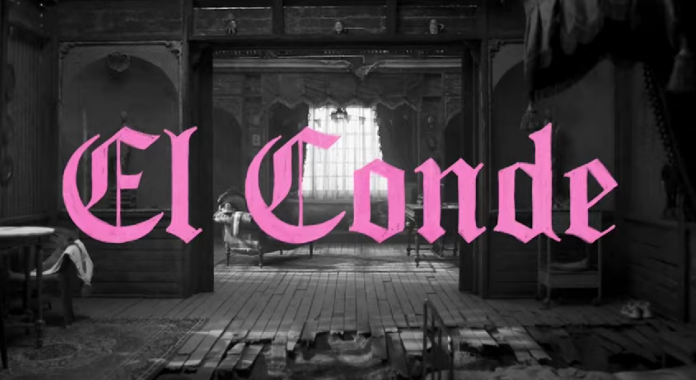What happens when you grab one of the most gruesome and horrible dictators in South American history and turn into a bizarre vampire? The great mind of Chilean director and producer Pablo Larrin answers it with El Conde.
El Conde could be described as an onion for its great script writing of a dark comedy. The many layers that cover this gruesome but hilarious piece of filmmaking take the viewer in a polyglot adventure. It has an English narrator, who becomes a surprise character at the end, a complete cast of Spanish-speaking Chilean actors and the occasional French explanation for some of the characteristics of this now-historical vampire.
Jaime Vadell performed as the character Augusto Pinochet, also referred to as El Conde or the Count, a narcissistic but depressed 200-year-old vampire who doesn’t want to be alive anymore but has to deal with the real historical turmoil that his actions caused in Chile during his dictatorship. It mixes up with a family drama movie between what El Conde describes as ‘useless spawn,’ to see who inherits the riches that he took from Chile.
But don’t forget that this isn’t a common historical movie, it’s a horror movie. The mixture of classical vampire prophetic teeth with flying humans over the city skyline of Santiago de Chile with the decapitating, gory and blood-filled scenes of the immortal beings feeding and killing. These scenes are covered by a gothic black and white filter used throughout most of the movie, which gives homage to other movies of the vampire genre such as Nosferatu and 1992’s Bram Stoker’s Dracula. Not only does it showcase the influences that the filmmaker took when developing the idea for this film, but it makes the film itself a good candidate to be compared to.
The strongest aspect of the cinematography is that it tries to attract the foreign viewer to understand the hunting ground of this vampire, set in early 2000s Chile. At the same time, it’s foggy atmosphere building aesthetic, mixed with the interior shots of a deteriorated farmhouse that makes viewers feel that they are the spectators of a play at a theater. This is achieved by adding them into the shot through points of view that allow them to see the characters move within the set at eye-level height.
And at last, the cherry on top of the movie lets the set building and character involvement flow smoothly through the screen with a curated soundtrack of classical music. It emphasizes the status of royalty that these people had in their real-life counterparts, but that later was reduced to ashes with the fall of Augusto Pinochet.
Needless to say, El Conde is a must-watch, even if you don’t know the historical background, but as a way of appreciating a breath of fresh air from the film industry.

